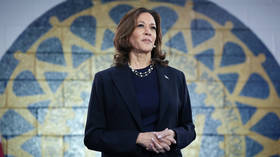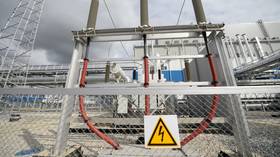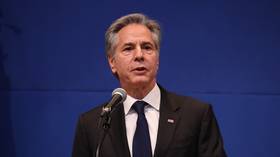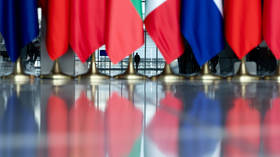Global financial body issues forecast on pandemic recovery
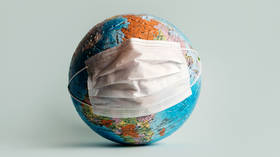
New research from the World Economic Forum (WEF) warns that the effects of the Covid-19 pandemic may take years to reign in and sheds light on major concerns regarding the future from the globe’s economic elite.
“Covid-19 and its economic and societal consequences continue to pose a critical threat to the world. Vaccine inequality and a resultant uneven economic recovery risk compounding social fractures and geopolitical tensions,” the new Global Risks Report released by the World Economic Forum (WEF) on Tuesday states.
The report is based on opinions of nearly 1,000 global risk experts and leaders from business, civil services, government, academic, and other spheres. It calls on nations to unite against the “divergence” stemming from unequal vaccination rates in richer and poorer nations, with the latter facing more pronounced economic hurdles and longer recovery as a result. In Ethiopia and Nigeria, for example, less than 3% are fully vaccinated against Covid-19, figures from Our World in Data show, while in the US 62% of citizens have received at least two doses, and in the UAE and Portugal – nearly 90%.
“The resulting global divergence will create tensions – within and across borders – that risk worsening the pandemic’s cascading impacts and complicating the coordination needed to tackle common challenges,” authors warn.
Many economists noticed that one of the worst impacts of the pandemic – aside from the death toll – has been the rise in economic inequality, with people around the globe facing job insecurity or education-related troubles. The report, however, fails to put existing worries regarding the pace of the global economic recovery into positive perspective.
“Although employment is approaching pre-pandemic levels in many advanced economies, globally the jobs recovery from the Covid-19 crisis is lagging the economic recovery... Youth, women and lower-skilled workers have been especially affected. It will take the global economy at least until 2023 to create the jobs lost to Covid-19,” the report states.
The majority of respondents agree that economic stagnation remains the most serious problem persisting from the pandemic, with its economic consequences continuing “to stifle countries’ ability to control the virus and facilitate a sustainable recovery.”
“The macroeconomic outlook remains weak, with the global economy expected to be 2.3% smaller by 2024 than it would have been without the pandemic,” the report projects.Overall, only 16% of those behind the report feel optimistic about the outlook for the world, while a mere 11% believe the global recovery will accelerate.
“Most respondents instead expect the next three years to be characterized by either consistent volatility and multiple surprises or fractured trajectories that will separate relative winners and losers,” the report claims.Surprisingly, however, the majority of experts surveyed by the report did not put economy-related troubles first on the list of major global risks for the years to come. ‘Livelihood crises’ got the fifth spot, while debt crises and ‘geoeconomic confrontation’ are at ninth and tenth positions, respectively. Officials and businessmen seemed more worried about climate, with ‘climate action failure’ ranking first on the global risks list.
Anxieties, however, differed by country, and while most European experts fretted over climate, Australian, British, and New Zealand’s respondents worried over cybersecurity. Japanese experts cited ‘prolonged economic stagnation’ as their top-concern, those from the US and South Korea spoke about ‘asset bubbles,’ Indians’ top concern was ‘fracture of interstate relations,’ and Chinese respondents named ‘extreme weather events’ as their prime worry.
The WEF usually publishes its annual risk report ahead of the Davos summit of the world’s economic elite, however, this year’s gathering was recently postponed due to Covid-19 – for the second year in a row.
For more stories on economy & finance visit RT's business section








